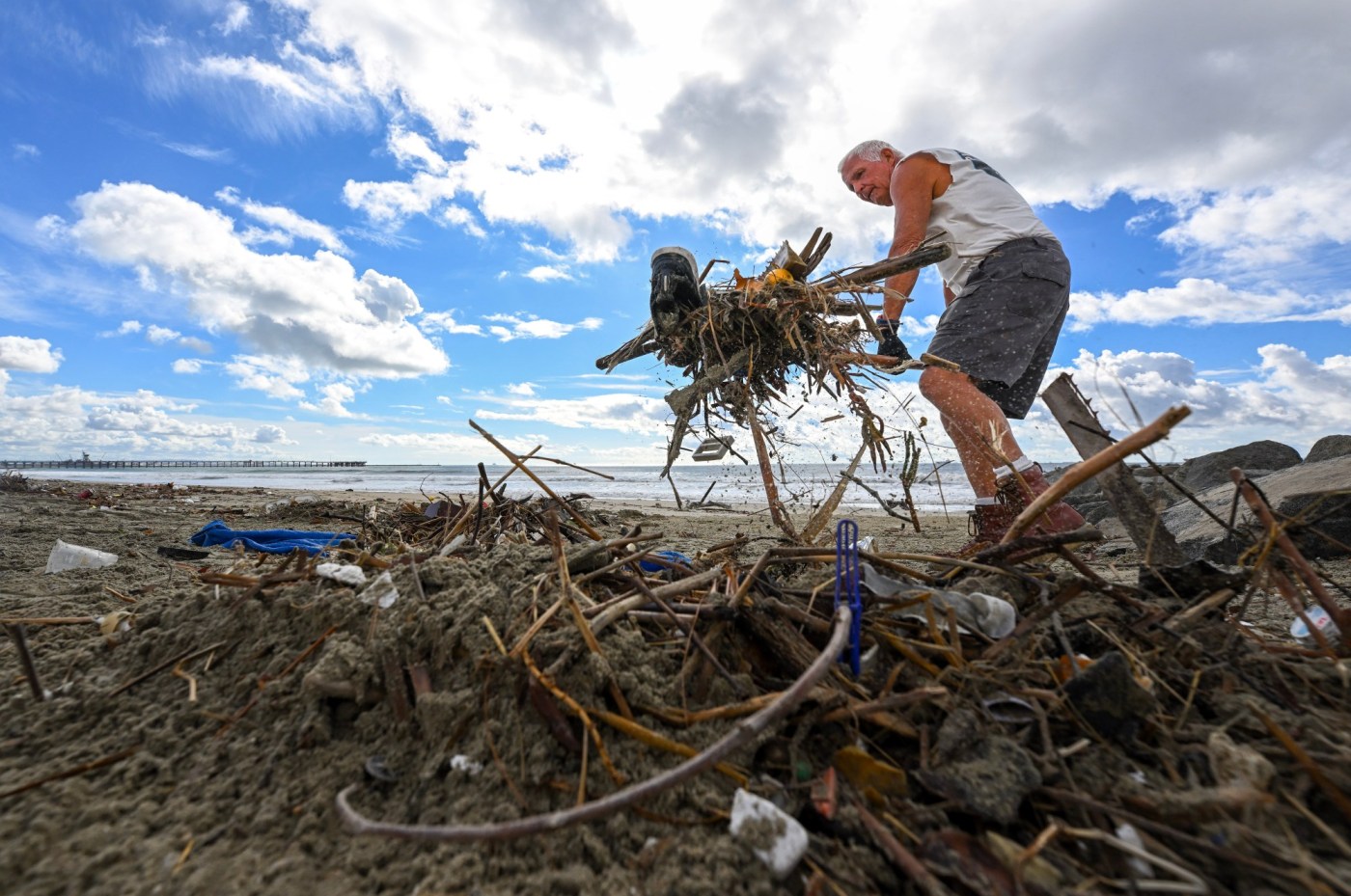Harry Kartinen, 82, drove to Seal Beach early Monday morning to help clear the mounds of trash that had washed to the shores over the weekend.
Equipped with his own rake and tarp, he scooped up sneakers, candy wrappers and Starbucks cups, among countless branches and other waste that littered the beach after some of the first heavy rain following the dry summer months.
Kartinen, a former Long Beach police officer, said he’s been helping collect trash along the Seal Beach shore nearly every morning for the past 11 years. Typically, he said the work lasts a few hours, but post-storm cleanup can take twice as long.
“I just hate to see the beach like this,” Kartinen said while lugging a drenched mattress onto dry sand.
More than 400 tons of trash flowed from the mouth of the San Gabriel River in 2024 — the figure has risen incrementally every year since 2021, according to data shared by the city. The river drains runoff from 52 inland cities, emptying into the Pacific Ocean between Seal Beach and Long Beach.
Orange County Supervisor Janet Nguyen, whose First District includes Seal Beach and who visited the shore Monday morning to highlight the trash problem, said she’s “heartbroken” to see the detritus and pollution that accumulates on the state’s beaches. Trash that washes into the ocean can affect the full 41-mile stretch of coastline in Orange County, Nguyen said, threatening marine life.
“The beach hosts a lot of events: surfing, Iron Man, the Pacific Airshow — you name it,” Nguyen said. “We need to protect the entire coast.”
Assemblymember Diane Dixon and Seal Beach Councilmember Joe Kalmick established the San Gabriel River Working Group last year to develop solutions to the trash problem, including installing trash interceptors to catch floating debris. Nguyen, who works with the group, said it has identified 17 sites along the river to install the traps.
A feasibility study of the county-funded project is expected to be released next month.
Nguyen said her office has been working with state and federal officials, including Sen. Alex Padilla, to secure more funding for the project. The county has allocated $525,000 in discretionary funds to Seal Beach’s trash‑mitigation efforts and trash traps.
Nguyen said community- and county-led cleanups are important and have kept thousands of tons of trash from the beaches and ocean, but they aren’t as efficient as automated systems.
“We need a system that works 24 hours, seven days a week,” she said. “As you can see, there are needles, small little things that are harder for us to capture, humanly, than would be in a bigger net system.”
Other Orange County cities have installed their own trash capture technologies. Newport Beach unveiled a $5.5 million water wheel in March — the first of its kind on the West Coast — and Huntington Beach has been testing a device similar to a Roomba on the water.







